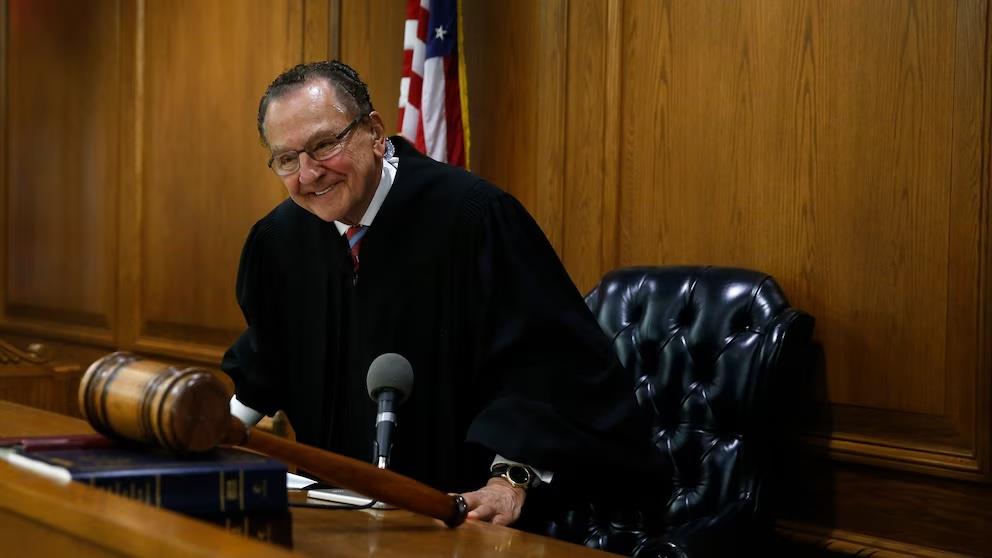
Opinion When Human Justice Redefined The Law: A Farewell To The World's Kindest Judge
Caprio was born into a modest immigrant family of Italian origin. From his early childhood, he worked in humble jobs such as shining shoes and washing dishes to support his family, all while remaining committed to his education despite hardships. These early experiences instilled in him a deep awareness of people's suffering, and he came to understand that behind every individual lies a story unseen in official papers. Such a social background did not drive him to adopt a harsh and rigid form of justice; rather, it helped him to rethink the very meaning of law itself: is it solely an instrument of deterrence, or is it a means of safeguarding human dignity?
Caprio began his professional journey as a teacher of American government, which endowed him with a pedagogical sensibility in his outlook on society. When he became a judge, he carried with him the spirit of a teacher who believed that punishment must contain within it a lesson of reform, rather than serve merely as a tool of retribution. Thus, he consistently balanced law as a set of fixed rules with mercy as a dynamic value responsive to individual circumstances. This combination made him unique among the judges of the world.
Dr. Marwa El-Shinawy
The world came to know Caprio more widely through his television program Caught in Providence. What distinguished him was that he transformed a small local courtroom into a global platform for human dialogue. Millions followed his decisions online, which transcended the borders of the United States to reach across continents. The scene of a judge forgiving a poor mother her traffic fine because he understood her circumstances, or inviting a child to participate in deciding a case, became a universal discourse on human justice, and a clear message that the law can smile, that a judge can listen, and that justice can recognize the person before the violation.
Caprio's impact was neither local nor limited, but transcultural. In the West, people saw in him a model reminding them of the roots of justice as a human value before it became a constitutional text. In other parts of the world, he was a source of inspiration and a message of hope that justice can be both fair and compassionate. In Africa, he was regarded as an example of how a judge could engage with citizens in a humane spirit that respects their dignity despite economic hardship. And in migrant communities, especially among Italians and other minorities, he became a symbol of the idea that justice can respect cultural diversity and social difference.
When Caprio was diagnosed with pancreatic cancer, he did not retreat into silence but continued his mission. He addressed the world asking for prayers, affirming that the judge who once gave strength to others in the courtroom was still capable of spreading hope even from his hospital bed. He turned his illness into a new platform for spreading values of patience and courage, proving that justice is not merely legal rulings, but also human stances that illuminate the path for others.
At a time when many chase after fame and power, Caprio stood apart, for he sought neither. Instead, he pursued a pure humanity that left a global impact. He showed that justice founded solely on legal texts becomes harsh, and that justice devoid of discipline dissolves into chaos. Balance between the two is what grants societies stability and individuals their dignity. His life experience reminds us all that justice does not belong to one society alone, but is a shared human value capable of uniting us regardless of our cultural differences.
Today, as we bid farewell to Judge Frank Caprio, we are not bidding farewell to a local American figure but to a global symbol of human justice. He showed us that law can be an instrument of reform, not a tool of destruction; that justice can cross cultures to become a shared language among all peoples. From East to West, from North to South, his legacy remains alive as one of the most inspiring models of the past decade.
Farewell, Frank Caprio. Farewell to the judge who taught the world that justice can be human, compassionate, and inclusive of all societies.
Dr. Marwa El-Shinawy – Academic and Writer

Legal Disclaimer:
MENAFN provides the
information “as is” without warranty of any kind. We do not accept
any responsibility or liability for the accuracy, content, images,
videos, licenses, completeness, legality, or reliability of the information
contained in this article. If you have any complaints or copyright
issues related to this article, kindly contact the provider above.


















Comments
No comment